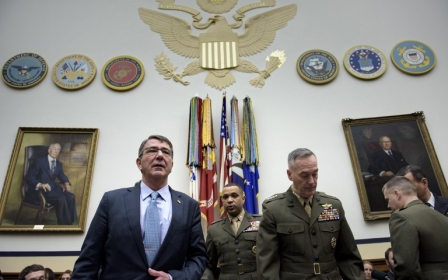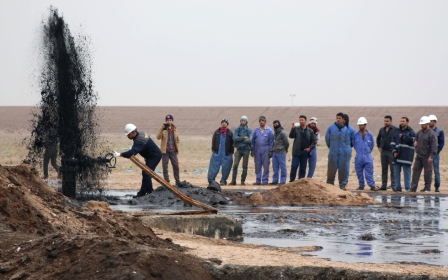A perilous world order comes into view

The passing of a year provokes occasional, but not constant thought over the world in which we happen to be living.
In this small space it is not possible to address all aspects of global affairs, but it is worthy to evaluate a most important issue: what the scholars of politics, history and international relations have agreed to call the world order.
This term, just like the modern sciences that coined it and legitimised its use, is in its origins a Western concept that developed in two phases: the birth of the Westphalian order in the 17th century and the emergence of Western European imperialisms in the 19th century.
Previously, in the Roman and the Islamic orders, the world view was linked to the moral and legal vision of the self. The Romans believed that the world was divided into two contradicting, even conflicting, spheres: the sphere of the Roman peace and the sphere of the Barbarians. The Muslims, who seem to have borrowed some aspects of the Roman conception, saw the world as divided across three main circles: the House of Islam, the House of Infidelity and the House of Covenant.
Then Europe was rocked by the Thirty Years' War. The destructive conflict erupted in 1618 as a result of religious divisions and the transformation of feudal estates into deep-rooted royal dynasties, as well as the erosion of the power and influence of the Church and the Holy Roman Empire. Following the war, the Westphalia Treaty laid the foundations for the concepts of borders, sovereignty and the modern state.
Consequently, Europe was divided into states and principalities, laying the foundations for the conflict-ridden continent we know today.
These are the foundations that are invoked every now and then in order to stress the illegitimacy of changing borders or violating sovereignty by force.
In the following two centuries, certain European powers - foremost among them Britain and France - used a rapid industrial advance and their growing ability to develop new means of destruction to build huge empires that extended overseas.
This was the beginning of the modern Western colonial era. As the endeavour to build empires across the entire globe generated conflicts among Western imperialist powers, these powers sought, by means of treaties, conventions and alliances, to address potential conflict well in advance and to organise relations on the basis of a balance of power and interests.
It was only natural for a collapse in this balance of power, or for a challenge posed by any given power to the stable order of relations, to lead to conflict as happened in the First and Second World Wars.
Towards the end of the Second World War, which saw the killing of tens of millions and unprecedented destruction across Europe, the Western powers sought to rebuild the world order, once more, on the basis of a balance of power between an Eastern Bloc led by the Soviet Union and a Western Bloc led by the United States of America.
At Yalta, the European continent was divided between the two blocs. However, the world's spheres of influence were never delineated in a clear and stable manner. This is what generated the Cold War, which raged directly or indirectly inside Asia, Africa and Latin America.
In the meantime, the European continent maintained a state of anxious peace by virtue of a horrific nuclear balance of power. Toward the end of the 1980s, and due to economic, political and cultural factors, the Eastern Bloc lost the Cold War and suffered a massive collapse that in the end did not only affect the countries of the Warsaw Pact but also brought down the Soviet Union itself.
Initially it seemed as if the end of the Cold War and the collapse of the Eastern Bloc and the Soviet Union were ushering in a new world order, one led by the United States of America, the sole remaining superpower.
A number of factors bolstered this concept. For instance, the United States was - and still is - the only country in the world capable of deploying troops across the entire globe. America’s geography provides it with more security than any other superpower has enjoyed in the history of the modern world.
In terms of rivals, while the Russian Federation had kept its nuclear capabilities, it was forced to retreat upon itself to recover from severe economic crisis and deal with internal rebellion and dissent. Despite China's rapid economic growth, it was unclear if the Middle Kingdom would become a global power to be reckoned with.
Europe had accelerated the process of transforming the European Economic Community into a united European entity, but profound doubts surrounded the European project and the ability of the European Union order to crystallise a joint political will.
In any case, and despite some grumbling here or there, Europe consented to the American leadership of the world.
It was never unhappy to see the United States shoulder the burdens of such leadership. Throughout the 1990s and the beginnings of the 21st century, NATO expanded quite rapidly, so much so that it ended up encircling the Russian Federation.
During the same period, the US-led Western powers waged the first Gulf War and then the Balkans wars without any attention to what Moscow or Beijing might think. They imposed their hegemony once more over the world's economic order by means of the World Trade Organisation and by emphasising their control over the IMF and the World Bank.
Yet, the unipolar order did not last long. It can be said that the year 2008, especially its second half, represented the turning point at which the world shifted from the single power order to an order that is dominated by a state of disorder and the absence of stable or semi stable rules of competition among international and regional powers.
In 2008, Russia had just begun to recover economically thanks to the major rise in the price of energy resources. With the use of force, it managed to finish off separatist movements in the Caucuses and started its endeavour to face off NATO's rapid push into Central and Eastern Europe.
Perhaps the Russian invasion of Georgia in August 2008 was the first indication of Russian self reassertion. Russia would never have been able to re-emerge on the world scene had it not been for the major failure of the American war policy in the East, which resulted in incurring heavy losses in both lives and wealth and had it not been for the the major Chinese economic rise and the beginning of the Russia-Chinese accord.
At the same time, new economic powers emerged. They became points of attraction for surplus global wealth competing with traditional Western markets. By the end of the year, a crushing financial crisis hit the Western economy. Most European economies are yet to recover from that crisis.
So, what does the new world order look like? And what does it mean for the countries of the Arab Islamic orient? It would be utterly naive to imagine the new order as another instalment of the multipolar world that prevailed in the 19th century.
The United States of America is still the biggest power in the world with resources and capabilities exceeding the total of what all the other powers possess together. However, the Obama administration has learned the limit of power and the enormous cost of acting singularly as a superpower while paying no attention whatsoever to other secondary powers in the world.
The United States has become less interventionist than before, focusing more on the efforts aimed at preserving the factors of superiority and containing the rising ambitions of countries such as China and Russia.
Russia, on the other hand, is too weak to occupy the position that was previously occupied by the Soviet Union. Despite all its attempts to respond to Western expansion and to assert its role in countries such as Syria, Armenia and the states of Central Asia, its greatest interest has been focused on its close surroundings, particularly in Europe and the Caucuses where it faces threats but does not know how to contain these threats.
China on the other hand, and by virtue of structural and natural factors, is almost approaching the end of grand economic growth. In any case, it does not desire to enter into direct and wide scale conflict with the Western powers that are still in control of the global economic order.
As for Europe, it is still bewildered and undecided whether to go down the road of unity or preserve the identity and sovereignty of the nation state. Each of the two choices incurs costs.
Such an anxious international situation has afforded sufficient space for regional powers to play an increasing role in determining the fate of their neighbourhoods and has, as a consequence, inflamed conflicts among them.
This is clearly portrayed by the crises of Iraq, Syria, Egypt, Yemen, and Libya. Here, as regional wills clash, powers have invited the superpowers to return and again play a larger role.
Unless regional powers acquire a measure of rationality to enable them to reach an accord about the spheres of their interests - as Europe tried more than once in the 19th century - the peoples of the region will pay a huge cost for these conflicts.
- Basheer Nafi is a senior research fellow at Al Jazeera Centre for Studies.
The views expressed in this article belong to the author and do not necessarily reflect the editorial policy of Middle East Eye.
Photo: US President Barack Obama during his end of the year news conference at the White House in Washington, USA on 18 December, 2015 (AA).
New MEE newsletter: Jerusalem Dispatch
Sign up to get the latest insights and analysis on Israel-Palestine, alongside Turkey Unpacked and other MEE newsletters
Middle East Eye delivers independent and unrivalled coverage and analysis of the Middle East, North Africa and beyond. To learn more about republishing this content and the associated fees, please fill out this form. More about MEE can be found here.





